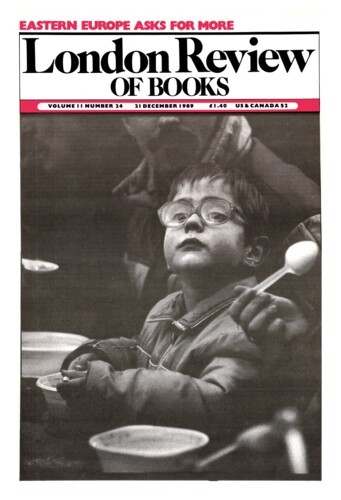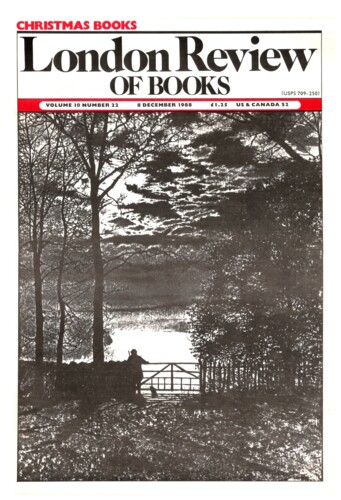Pioneering
Janet Todd, 21 December 1989
‘Catherised’ was how Ernest Hemingway described the portrayal of the Great War in One of Ours by Willa Cather. Despite lifting scenes from the movie Birth of a Nation, it made Cather rich and won her the Pulitzer Prize. H.L. Mencken was as dismissive as Hemingway, finding in it a ‘lyrical nonsensicality’ that ‘often glows half pathetic’; its setting was that of ‘a Hollywood movielot’. Fitzgerald mocked the bucolic Cather and her intervention in the absurd history of the idealised inarticulate farmer: Cather ‘turns him Swede’, he wrote. Edmund Wilson accused her of failing at characterisation and storytelling: she may be a ‘good craftsman’ but she has ‘an anemia of the imagination’ and is given ‘to terrible lapses into feminine melodrama’. Discussing ‘the subtle failure of her admirable art’, Lionel Trilling saw Cather’s emphatic nostalgia as a rejection of the modern, an enrolment in the ranks of ‘the backward’ with no shadow of awareness that this movement must make her talent irrelevant not only to her own time but to any time. He mocked her ‘mystical concern with pots and pans’, which he glossed as an oblique defence of gentility and domesticity; he accused her of caste and culture snobbery.


